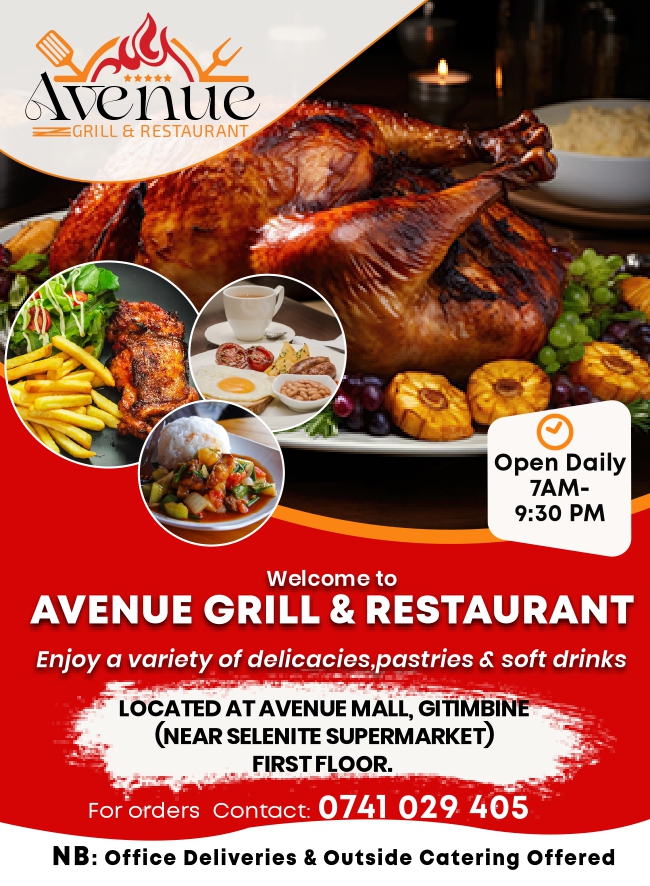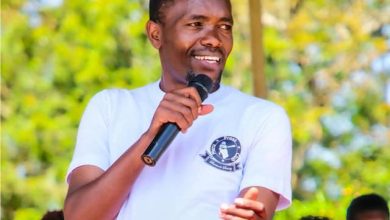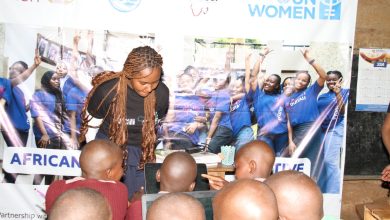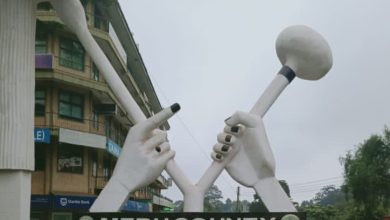Education: A beacon of hope for refugees in Kenya
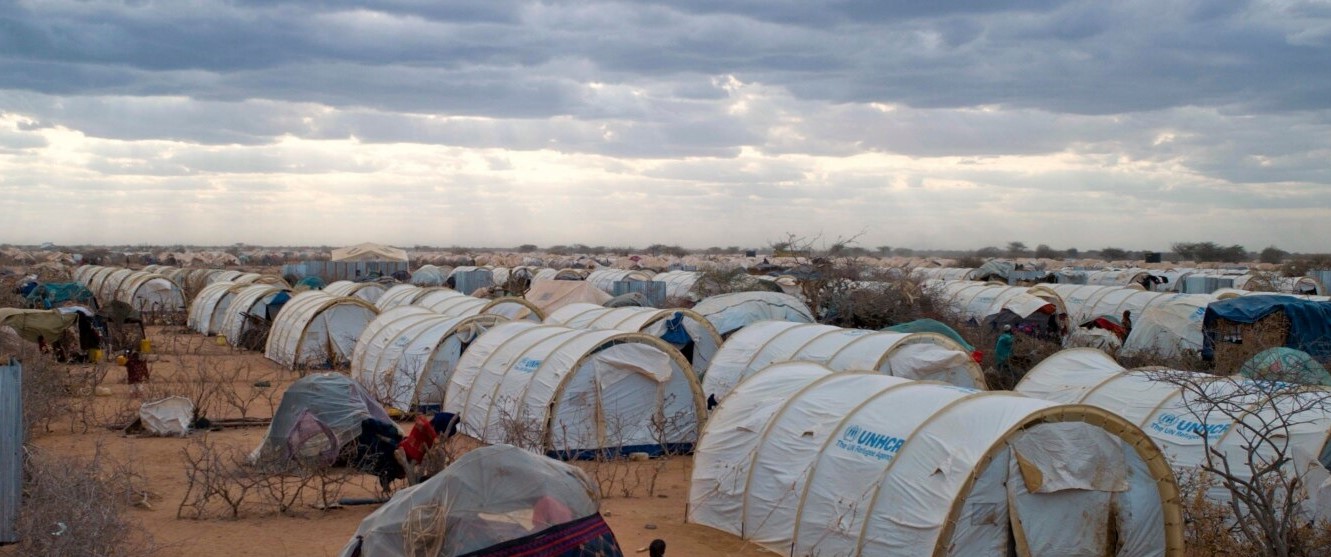
By Lenah Makena
While refugees in Kenya have faced and will continue to tackle many challenges, nothing surpasses the hope for a better future.
According to the United Nations High Commissioner for Refugees (UNHCR), Kenya hosts over 650,000 registered refugees and asylum-seekers fleeing from their nations and others from persecution in some of the largest refugee camps in the world. Though intended as temporary, many refugees find themselves stuck in these camps for years, sometimes even generations.
Refugees experience many challenges caused by their long detentions, including mental illnesses, exploitation, loss of social identity, and lack of opportunity. Despite this, to many refugees such as a 28-year-old lady whom we name Grace due to security reasons, education is the key to tackling this traumatizing circumstance.
Grace, a Congolese refugee, living in Nairobi, is a fashion designer earning an income by running a small business making clothes for women. However, Grace says getting stability in a country that is not home has been a journey that can only be described as one characteristic of triumph over adversity.
In 2010, at the tender age of 15, she recalls how she had to flee her country, the Democratic Republic of Congo (DRC), and travel over 1000 km on foot to the Kenya-Ugandan border, escaping the chaos of war and poverty.
At such a young age, Grace witnessed the horrors of war in Congo.
“I still remember running in the forest as a little girl, running over dead bodies, hearing gunshots, and seeing people killed with machetes including my parents.” she narrates.
For Grace, coming to Kenya wasn’t just a quest for refuge from the looming dangers in Congo; it represented a chance to reconstruct her life.
Her expectations were however cut short when she arrived in Nairobi, she found herself grappling with the harsh realities of poverty and survival fear that often befall many urban refugees.
Life as a refugee in Nairobi
Grace recounts the language barrier as her biggest challenge as she was unable to communicate in English or Swahili. Lack of formal education made her life more difficult as she barely had any functional numeracy and literacy skills for survival.
“Back in Congo, poverty and the constant threat of war led my parents to decide against sending me to school. As a result, upon arriving here, I could only speak my mother tongue” she explains.
Unable to express herself well, her efforts to get a job so she could afford basic needs like food and rent become a challenge.
“When I first came, people were often hesitant to give refugees jobs and it was even harder if you could not speak Swahili. Whenever I got lucky it would be a job in a hotel washing utensils at Sh100 a day” she narrates.
Her inability to speak the common language hindered her efforts to integrate with the Kenyans leaving her lonely and feeling secluded.
“I often isolated myself and only interacted with other Congolese refugees I had met in Kayole.” she recounts.
Over the next five years, Grace found herself caught in an unrelenting cycle of poverty, toiling in jobs that offered meager compensation, barely enough to meet her basic needs.
“I aspired to enroll in school here in Kenya, aiming to reshape my destiny. However, my earnings fell short, making it challenging to sustain myself and cover educational expenses. I awaited the official recognition as a refugee in Nairobi,” she adds.
Much like numerous other refugees grappling with circumstances akin to Grace’s, the opportunity to access education in Kenya is hindered by a combination of factors-documentation issues due to lack of identity card, language barriers, and a glaring lack of financial means to meet the costs of education.
The light at the end of the tunnel
It was not until Grace turned 22 that life took a U-turn for the better, and her dream of getting educated began.
In 2016, she was fortunate to receive a full educational sponsorship from RefuSHE, a non-governmental organization based in Nairobi, committed to empowering and safeguarding young urban refugee women through educational initiatives. This support not only marked a significant milestone for Grace but also exemplified the positive impact that non-governmental organizations can have on the lives of refugees striving for education and empowerment.
“RefuSHE truly transformed my life. Upon joining the organization, they assisted with my documentation challenges, provided crucial assistance with rent, and facilitated my enrollment in an accelerated adult education program.” Grace narrates
Despite being overaged with no previous formal education and learning a language that was not familiar to her, Grace was determined to get formal education in the hope that it would change her fate.
“For the first year, I began taking functional numeracy and literacy classes in English and Swahili. It was the hardest year of my life. I had a lot to catch up on” she shares.
Seven years later, Grace achieved a milestone by completing her Kenya Certificate of Primary and Secondary Education (KCSE) and delving into vocational training, specializing in tailoring. Recently, she obtained certification from the National Industrial Training Authority (NITA).
“After my KCSE, I aspired to acquire a skill that would empower me for self-employment. When the prospect of learning tailoring presented itself, I embraced it wholeheartedly. Looking back, I can affirm that it was the most rewarding decision I made,” she reflects.
Presently enrolled at the East Africa Institute of Certified Studies, Grace is pursuing a certificate in fashion and design, noting that life as a refugee has become more manageable.
“When not in school, I operate my small business, crafting and selling African attires known as ‘vitenge’ attires. I’ve cultivated a client base through friends and online platforms.”
For Grace, access to education has served as the cornerstone for rebuilding her life with dignity, enabling her to reconstruct vital support systems and integrate seamlessly into the Kenyan community.
To better understand the challenges refugee women, encounter in getting education, County Focus spoke with Loise Kamau, a seasoned professional with over 15 years of experience in humanitarian and development work. Besides documentation issues, Ms Kamau notes that majority of refugees grapple with competing priorities such as family caregiving. She also notes that a considerable number of refugee women are overage, posing difficulties for their enrolment in public schools in Kenya.
“Without the right documentation such as a birth certificate, accessing public schools in Kenya is challenging for refugees. The only option is to join private schools which most cannot afford”
In light of these unique challenges, Loise strongly advocates for a more compassionate approach within Kenya’s education systems to address these unique struggles faced by refugees seeking education.
“There is a pressing need for fully inclusive education systems that accord refugees the same access and rights as learners from the host country. This entails dismantling barriers rooted in factors such as nationality, legal status, and documentation,” she recommends.
According to statistics from the United Nations High Commissioner for Refugees (UNHCR) Kenya, of the total refugee and asylum-seeking population in Kenya, 83 percent are women and children. Most of them have witnessed heinous acts of violence, and often are left to cope with trauma and rebuild amid insecurity and uncertainty in a new country. Rebuilding for these women means access to livelihood and most importantly their right to education.
Earlier this month, the Government achieved a noteworthy milestone by officially gazetting the operational regulations for the Refugee Act No. 10 of 202, which came into effect on February 1st, 2024. This official gazetting underscores the government’s steadfast commitment to establishing a secure and inclusive environment for refugees and asylum seekers. In particular, the streamlined issuance of documents will play a pivotal role in empowering refugees to pursue education and engage in livelihood activities essential for their self-sufficiency.

